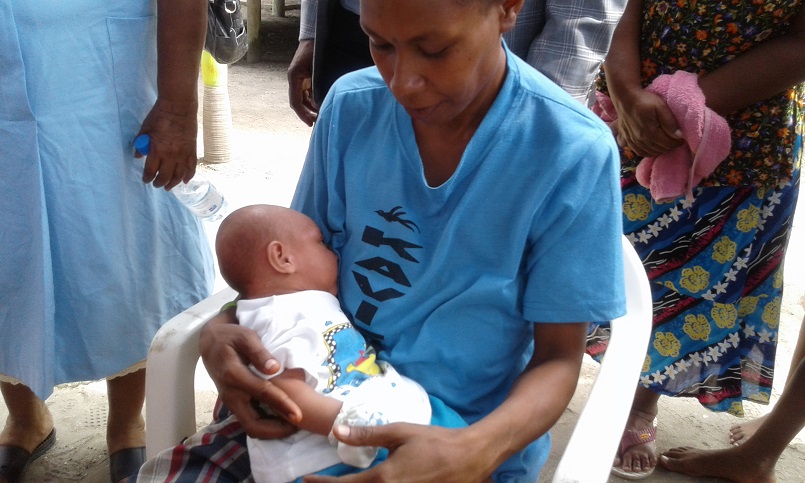
The launch of the Child Immunisation Week was hosted in Boera village in Central Province in a small but significant event.
Papua New Guinea has less than 75 per cent of immunisation coverage, while these two districts and a few others have even lower rates with the Hiri and Kairuku scoring only 44 per cent.
Having a low immunisation coverage rate means a high percentage of children are not protected against preventable diseases such as measles, pneumonia, Tuberculosis, whooping cough, hepatitis B, diphtheria and meningitis.
Health experts are now calling for everyone, including parents to help ensure their children are immunised with vaccines that are freely being given in government-run health facilities.
A global event held every year, this year’s Child Immunisation Week was launched by representatives from WHO, National Department of Health and Central Provincial Health Services as part of the effort to boost the immunisation coverage rate in the country.
This will be followed by other activities in the following months.
Deputy Health Secretary (National Health Plan and Corporate Services) Elva Lionel said the World Immunisation Day is set aside for respective countries to reflect on their immunisation programs, celebrate achievements and intensify immunisation campaigns if need be.
However, she said PNG had no cause for celebration because it had a very low coverage rate and needs to work extra hard to improve the situation for the sake of its vulnerable population – the children – before it could think of celebrating.
Speaking on behalf of the National Health Secretary Pascoe Kase, Lionel said: “Our maternal and child health indicator speaks volumes why we should not hold big celebrations. We just simply continue to work and work extra hard until we reach a point where we feel we have a reason to celebrate then we will,’’ said Lionel.
She said the Immunisation week is an opportunity to set a focus, step up efforts and intensify the campaign on closing the immunisation gap.
“Today, the wheels for change in immunisation must turn, and turn in the right direction and accelerate speed to get the coverage gap by to reach the 95 per cent or even 100 per cent or closer,’’ she said.
Statistics show that one child in every 13 born in PNG die before the age of five – which is higher than any other country in the Pacific region. These deaths can easily be prevented with readily available vaccines.
“The vaccine preventable diseases that our children suffer from include measles, pneumonia, TB, diphtheria, whooping cough, hepatitis B and meningitis. Pneumonia is one of the most common causes of serious illness and deaths in children in Papua New Guinea, accounting for 30 – 40 per cent hospitalisations and deaths.,’’ said Lionel.
